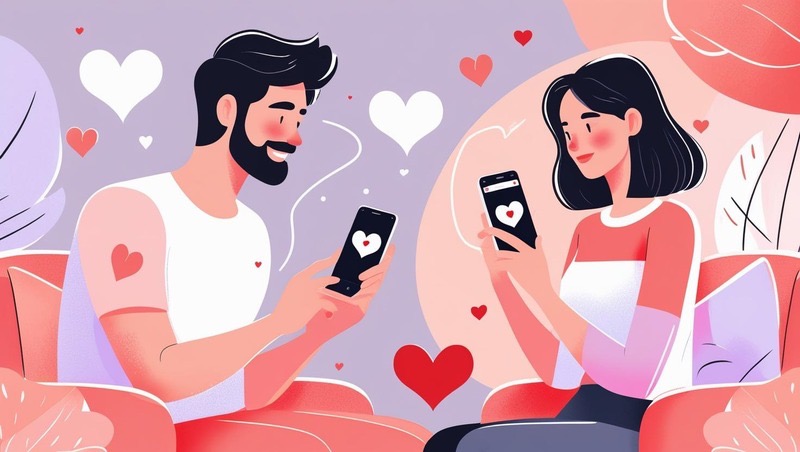
Signs of a Healthy vs. Unhealthy Relationship
Relationships have the power to bring out the best—or the worst—in us. Knowing the signs of a healthy relationship versus an unhealthy one can protect your emotional well-being and help you build a lasting, respectful connection. While no relationship is perfect, certain patterns clearly separate secure love from toxic entanglements.
Let’s break down the key indicators of healthy and unhealthy relationships so you can recognize what’s nurturing—and what’s not.
1. Communication
Healthy: You talk openly and honestly, even about hard topics. You feel heard, not dismissed. Disagreements are approached with respect.
Unhealthy: One person dominates conversations, avoids difficult topics, or uses silence as punishment. The Gottman Institute emphasizes that communication is the #1 predictor of relationship success.
2. Trust
Healthy: You don’t feel the need to check each other’s phones, whereabouts, or social media. Trust is freely given and rarely questioned.
Unhealthy: There’s snooping, jealousy, or constant accusations. Love Is Respect explains how lack of trust often leads to controlling behaviors.
3. Independence
Healthy: You both maintain your individuality—hobbies, friendships, and goals outside the relationship.
Unhealthy: One person feels suffocated or codependent. Isolation from others is a red flag. Psychology Todayhighlights how enmeshment can damage personal identity.
4. Conflict Resolution
Healthy: You solve disagreements through compromise and calm discussion. You may disagree, but you stay respectful.
Unhealthy: Fights escalate quickly, often ending in yelling, insults, or emotional withdrawal. Verywell Mind warns that chronic conflict often signals a toxic pattern.
5. Respect
Healthy: You feel valued and appreciated. Boundaries are respected.
Unhealthy: There’s name-calling, mocking, or dismissing each other’s opinions. National Domestic Violence Hotlineexplains that verbal disrespect is a form of emotional abuse.
6. Support
Healthy: You uplift each other’s dreams and show interest in one another’s success.
Unhealthy: Your partner minimizes your goals, feels threatened by your success, or discourages you from pursuing growth. Mind.org.uk emphasizes the importance of mutual support for emotional well-being.
7. Boundaries
Healthy: Each person has the right to say no, ask for space, and express needs without fear.
Unhealthy: Boundaries are ignored or ridiculed. One person may demand constant access or overshare without consent. Healthline offers tips for setting boundaries in relationships.
8. Accountability
Healthy: Partners admit when they’re wrong and strive to make things right.
Unhealthy: Blame is always shifted. There’s denial of harmful behavior or gaslighting. Medical News Today defines gaslighting as a psychological manipulation that undermines your reality.
9. Emotional Safety
Healthy: You feel emotionally safe and free to be vulnerable.
Unhealthy: You walk on eggshells, worried about triggering anger or withdrawal. Attachment Project notes that emotional safety is the bedrock of secure attachment.
10. Intimacy
Healthy: Intimacy is consensual, respectful, and emotionally fulfilling.
Unhealthy: Intimacy is used as manipulation, withheld as punishment, or forced. RAINN provides resources if boundaries are crossed in sexual relationships.
11. Equality
Healthy: Power, chores, and decision-making are shared equally.
Unhealthy: One person dominates or controls finances, decisions, or life direction. Break the Cycle emphasizes that healthy relationships are partnerships, not hierarchies.
Quick Comparison Chart
| Feature | Healthy Relationship | Unhealthy Relationship |
|---|---|---|
| Communication | Honest and respectful | Dismissive or hostile |
| Trust | Freely given | Jealous or suspicious |
| Boundaries | Respected | Ignored or mocked |
| Conflict | Solved with compromise | Escalates to attacks or shutdowns |
| Accountability | Admits faults | Denies and deflects |
Final Thoughts
Recognizing the signs of healthy versus unhealthy behavior is essential not just for your happiness—but for your safety and growth. A good relationship doesn’t mean never having conflict—it means resolving it with kindness and respect.
You deserve a relationship that feels like support, not survival. If anything in your relationship feels off, trust your instincts—and know help is available.


